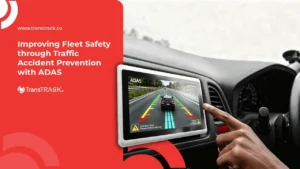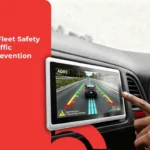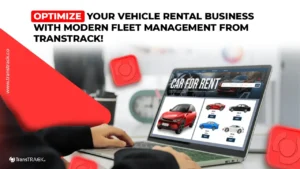Know the Differences between ABS and Non ABS Brakes and Their Advantages!
Posted on February 9, 2024 by Nur Wachda Mihmidati

The difference between ABS and non-ABS brakes is significant. Braking is a crucial aspect of driving safety that is often overlooked. In a world filled with advanced technology, we are often faced with the choice between ABS (Anti-lock Braking System) brakes and non-ABS brakes. But how important is the difference between the two?
In this article TransTRACK, we will uncover the fundamental differences between ABS and non-ABS brakes, and consider the advantages and disadvantages of each system. From the simplicity of the design to its effect on driver safety, let’s explore these essential differences to help you make a better decision about the braking system for your vehicle.
Let’s start by understanding what makes ABS and non-ABS brakes different and how it affects your driving experience.
Differences between ABS and Non ABS Brakes
ABS (Anti-lock Braking System) brakes and non-ABS brakes are two different types of braking systems with different characteristics. Here are the main ABS and non-ABS brake differences between the two:
Basic Functions
- ABS: The ABS system is designed to prevent the vehicle’s wheels from locking up during hard braking. It does this by monitoring wheel speed individually and adjusting the braking pressure automatically to prevent the wheels from locking up, thus maintaining vehicle control.
- Non-ABS: Non-ABS brakes are conventional braking systems that do not have the ability to prevent the wheels from locking up during hard braking. The driver must manually control the braking pressure to prevent the wheels from locking up.
Braking Performance
- ABS: With ABS, the driver can brake hard without worrying about the vehicle’s wheels locking up. This helps to maintain traction and reduce braking distance in emergency situations.
- Non-ABS: With non-ABS brakes, if the wheels lock during hard braking, slip and loss of vehicle control is likely.
Use on Different Types of Road Surfaces
- ABS: ABS systems are generally more effective than non-ABS when used on slippery or uneven road surfaces, such as muddy or gravel roads.
- Non-ABS: While they can still function well on normal road surfaces, non-ABS brakes may not be as effective as ABS when used on extreme road conditions.
Cost and Maintenance
- ABS: ABS systems are often more expensive to install and require more intensive maintenance as they have additional components such as wheel speed sensors.
- Non-ABS: Non-ABS brakes tend to be cheaper and easier to maintain as it is a simpler system with no additional components.
Comfort and Safety
- ABS: The ABS system can improve driver safety by preventing the wheels from locking up and maintaining vehicle control, especially in emergency braking situations. In addition, the driver can feel more comfortable as they can brake hard without the fear of the wheels locking up.
- Non-ABS: Non-ABS brakes may not be as effective as ABS in emergency situations, and may require higher braking skills from the driver to avoid wheel lock.
How are ABS and non-ABS brakes different? It’s understandable, right? The choice between ABS and non-ABS brakes depends on the driver’s preference, the vehicle’s usage conditions, and budget. While ABS is often considered superior in terms of safety, non-ABS brakes are still widely used, especially in more affordable vehicles.
ABS Brake Advantages
ABS (Anti-lock Braking System) brakes have several advantages that make them a popular choice in many modern vehicles. Here are some of the main advantages of the ABS system:
Prevents Wheel Lockup
The ABS system is designed to prevent the vehicle’s wheels from locking up during hard braking. This helps maintain traction between the tires and the road surface, which in turn maintains vehicle control.
Improves Safety
By preventing the wheels from locking up, ABS helps the driver maintain control of the vehicle during emergency braking or on slippery road surfaces. This reduces the risk of loss of control or loss of traction, which can avoid an accident.
Shorter Braking Distance
ABS allows the driver to brake hard without worrying about the vehicle’s wheels locking up. This can reduce the braking distance in emergency situations, as the vehicle can maintain traction with the road surface.
Improves Vehicle Stability
By preventing the wheels from locking up, ABS helps maintain vehicle stability during braking. This is especially important in emergency situations or during sudden maneuvers.
Ability to Operate on Various Road Surfaces
The ABS system can operate well on various types of road surfaces, including wet, muddy, or gravel roads. This makes it more flexible and reliable in various weather and road conditions.
Driver Comfort
Drivers feel more comfortable when using ABS as they can brake hard without fear of wheel lock. This reduces anxiety and stress when performing emergency braking or on extreme road conditions.
Adaptability to Other Vehicle Systems
ABS systems can be integrated with other vehicle systems, such as traction control systems or electronic stability systems, to improve overall safety performance.
With these advantages, ABS brakes have become standard in many modern vehicles and are considered an important step in improving driver and passenger safety.
Advantages of Non ABS Brakes
While ABS (Anti-lock Braking System) brakes have many of the advantages described earlier, non-ABS brakes still have some advantages that make them relevant in some situations and for some drivers. Here are some of the advantages of non-ABS brakes:
Simple and Economical
Non-ABS brakes are a simpler and cheaper braking system compared to ABS. This makes it a more affordable option for vehicles on a budget.
Easier Maintenance
Being simple in design, non-ABS brakes tend to require less maintenance and upkeep compared to more complex ABS systems. This can reduce the vehicle’s long-term maintenance costs.
Resistance to Extreme Conditions
Non-ABS brakes may be more resistant to extreme road conditions or harsh environments, such as off-road operations or in areas with poor road access. It simply allows for easier repair or customization to specific conditions.
More Direct Feeling of Control
Some drivers feel that non-ABS brakes provide a more direct and intuitive feeling of control, as there is no electronic intervention in the braking process. This can give added confidence to drivers who have experience in operating conventional braking systems.
Ability to “Pump” the Brakes
In emergency situations where the wheels are locked, the driver can use the brake “pump” technique on non-ABS brakes to avoid wheel lock-up and maintain traction. Although it requires higher skills, this technique is still effective in certain situations.
Lighter Weight
Non-ABS brakes are usually lighter overall compared to ABS systems. This can provide benefits in terms of fuel efficiency and overall vehicle performance.
That said, it is important to remember that while non-ABS brakes have certain advantages, ABS brakes remain the safety standard desired by many drivers and governments for their ability to improve vehicle safety and control, especially in emergency conditions. The decision between ABS and non-ABS brakes should be carefully considered based on individual needs and preferences.
In choosing between ABS and non-ABS brakes, drivers should consider various factors including vehicle needs, personal preferences, and safety priorities. However, no matter the type of brakes chosen, regular maintenance and monitoring of the brake condition is key to keeping the vehicle safe and in top condition.
By utilizing TransTRACK’s Vehicle Maintenance System, drivers can easily monitor the health of their braking system, receive early warnings of potential issues, and schedule regular maintenance. As such, drivers can ensure that their brakes are always functioning properly, whether it’s a complex ABS system or a simpler non-ABS brake.
Don’t let braking be a question of safety. Be proactive in maintaining your vehicle with TransTRACK, for a safer and more comfortable ride. Check out our website for more information on how to get started using TransTRACK’s Vehicle Maintenance System today!
Topic :
Recommended Articles

Improving Fleet Safety through Traffic Accident Prevention with ADAS
Featured Product | February 12, 2026
 Bahasa Indonesia
Bahasa Indonesia







